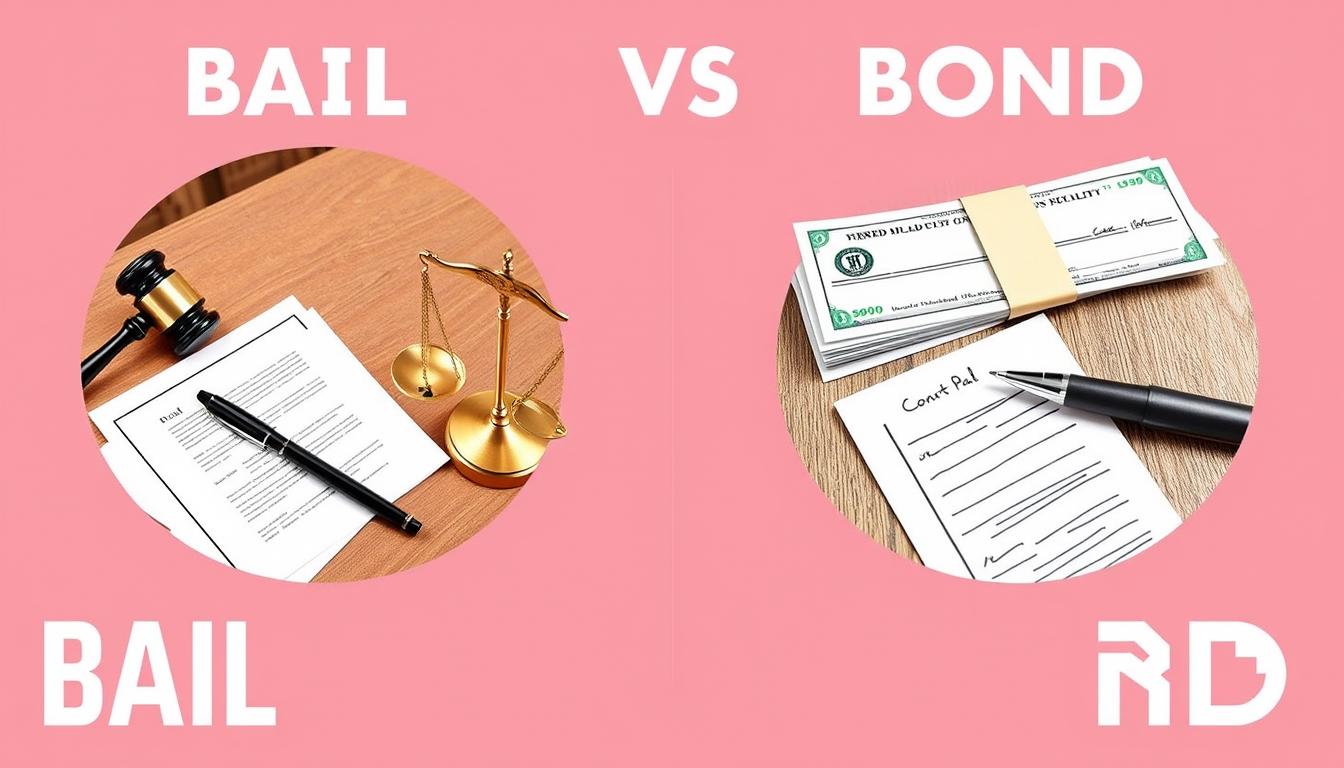Just how to Navigate the Intricacies of a Bail Bond: Tips for First-Time Users
Navigating the complexities of a bail bond can be frustrating for those strange with the procedure. Several new customers find themselves confused by the terms and commitments entailed. Comprehending key ideas such as costs and security is vital. In addition, selecting a reliable bondsman can greatly relieve the journey. Nonetheless, there are crucial elements and typical mistakes that can make complex issues additionally. Discovering these can offer important insights for any individual encountering this tough scenario.
Recognizing Bail Bond Terminology
What essential terms should one know with when passing through the world of Bail bonds? Understanding basic terminology is crucial for steering Bail bonds properly. The term "Bail" describes the quantity of cash or building called for to secure an offender's launch from custodianship, ensuring their appearance in court. "Bail bond" represents an agreement in between the defendant, the court, and a Bail bondsman, who provides the Bail amount for a charge, normally 10-15% of the overall Bail. "Collateral" might be called for, including possessions pledged to assure repayment if the defendant falls short to appear. "Costs" is the non-refundable cost paid to the bondsman for their services. In addition, "forfeit" takes place if the defendant does not adhere to court looks, bring about the loss of the Bail quantity. Experience with these terms encourages people to make informed choices throughout the Bail procedure.
The Various Sorts Of Bail Bonds

The Bail Bond Refine Explained
Understanding the bail bond procedure is essential for anyone steering the judicial system. When a person is detained, a court sets a Bail quantity based upon the intensity of the fees and the accused's flight threat - bail bonds service. A bail bond can be obtained via a qualified Bail bondsman if the Bail is expensive. The accused or co-signer normally pays a non-refundable charge, generally around 10% of the complete Bail amount
Once the bond is safeguarded, the bondsman guarantees the court that the offender will stand for all scheduled hearings. If the accused fails to appear, the bail bondsman is in charge of paying the complete Bail amount, which can bring about recovery initiatives to locate the individual. Throughout this procedure, communication with the bondsman is crucial, as they provide support and assistance to guarantee conformity with court needs and responsibilities.
Your Rights as a Co-Signer
Co-signers play an essential function in the bail bond process, as they are legitimately in charge of ensuring that the offender complies with the problems of the bond. This duty includes specific legal rights that co-signers need to recognize. To start with, co-signers have the right to obtain complete disclosure concerning the regards to the bond, consisting of fees and possible liabilities. They likewise deserve to be notified if the defendant breaks any kind of conditions of the bond, such as failing to appear in court.
In addition, co-signers can ask for a duplicate of the bail bond agreement for their records. They are entitled to comprehend the repercussions of their monetary commitment, consisting of bail bond the opportunity of being held responsible for the sum total of the bond if the defendant does not comply. Eventually, co-signers deserve to withdraw their assistance under certain conditions, although this might require notifying the bail bond representative beforehand.
Usual Blunders to Avoid
Navigating the bail bond procedure can be intricate, and co-signers frequently make numerous common mistakes that can bring about difficulties. One significant mistake is failing to check out the whole Bail agreement, which might include crucial conditions that affect their monetary responsibility. In addition, co-signers occasionally ignore the value of comprehending the accused's circumstance, including their court dates and potential consequences of non-compliance. Another constant blunder is overlooking to maintain interaction with the bondsman, which can prevent the procedure if issues arise - bail bonds service. Co-signers might likewise forget the economic ramifications of Bail, not completely understanding the fees entailed or the possibility of losing security. Ultimately, they could presume that once Bail is uploaded, their obligation ends, not understanding that they stay responsible till the case is dealt with. Staying clear of these risks can significantly reduce the bail bond experience for newbie individuals
Often Asked Inquiries
Exactly How Do Bail Bond Companies Figure Out the Premium Quantity?
Bail bond companies typically identify the costs quantity based on the complete Bail amount, the danger related to the accused, and the firm's policies. Elements like the accused's criminal background and flight risk likewise affect this decision.
Can I Work Out the Regards To a Bail Bond?
The opportunity of discussing bail bond terms varies by firm. Some bondsmen may use adaptability, while others adhere strictly to developed standards. It is suggested to talk about choices straight with the bail bond representative for quality.
What Happens if the Accused Misses Their Court Date?
A bench warrant may be released for their apprehension if a defendant misses their court date. In addition, the bail bond may be surrendered, resulting in monetary effects for the co-signer and potential legal problems for the defendant.

Are Bail Bond Fees Refundable After the Situation Concludes?
Bail bond fees are generally non-refundable, regardless of the case outcome. This cost makes up the bond agent for the service of safeguarding the offender's release, covering dangers and management prices associated with the procedure.
Can I Utilize Collateral Besides Residential Property for a Bail Bond?
The concern of using security past residential property for a bail bond usually develops. Many bail bond representatives accept numerous kinds of security, such as cars or valuable things, however plans may vary by company and jurisdiction.
"Bail bond" denotes an agreement between the offender, the court, and a Bail bondsman, who provides the Bail amount in exchange for a fee, generally 10-15% of the overall Bail. The most usual type is the surety bond, where a Bail bondsman ensures the full Bail amount in exchange for a charge, usually around 10%. If the Bail is expensive, a bail bond can be acquired via an accredited Bail bondsman. Co-signers play an essential duty in the bail bond process, as they are lawfully liable for making sure that the offender adheres to the conditions of the bond. Bail bond companies normally establish the premium quantity based on the complete Bail amount, the danger linked with the offender, and the company's plans.